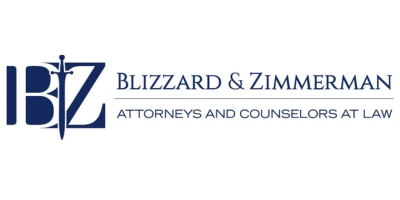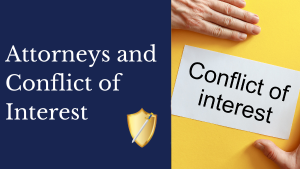Good attorneys know that failing to deal with impermissible conflicts of interest lead to difficult ethical problems in their practice.
Conflicting responsibilities are part of the nature of practicing law.
Whether you’re working with a seasoned attorney or an attorney just beginning their legal career, they must have an understanding and manage conflicts of interest. This is is crucial to maintaining ethical standards and providing effective representation. The lawyer must at a minimum withdraw and communicate that the representation has ended when such a conflict arises.
Understanding Conflicts of Interest and Lawyers
A conflict of interest arises when an attorney’s obligations to one client are adversely affected by their duties to another client, a former client, or their own interests. These conflicts can compromise the attorney’s ability to represent their clients impartially and effectively.
Why Addressing Conflicts is Important
Good attorneys know that failing to manage conflicts of interest leads to ethical dilemmas and can jeopardize their professional integrity. Under the Texas Disciplinary Rules of Professional Conduct, Rule 1.06 specifically addresses conflicts of interest and outlines the actions attorneys must take to avoid these pitfalls.
Rule 1.06 and Its Implications
Rule 1.06 of the Texas Disciplinary Rules of Professional Conduct mandates that attorneys must recognize conflicts of interest and take appropriate steps to address them. This involves:
- Identifying Conflicts: Attorneys must be vigilant in identifying situations where their loyalties may be divided.
- Taking Action: When a conflict arises, attorneys must take decisive action, which may include withdrawing from representation to avoid compromising their ethical obligations.
Withdrawal and Communication
When a conflict of interest is identified, the attorney must, at a minimum, withdraw from the representation. This action must be communicated clearly to the client to ensure they understand that the attorney-client relationship has ended.
The Lawyer’s Conscience
At such a low threshold, an attorney’s conscience becomes the touchstone against which to test whether their actions are appropriate. A lawyer’s ethical judgment plays a critical role in navigating conflicts of interest and ensuring that their conduct aligns with professional standards.
Divided Loyalty
Representing multiple parties in a single matter is often implausible for attorneys, as divided loyalty violates a fundamental aspect of lawyer
representation. An attorney must always act in the best interest of their client, and divided loyalty can hinder this obligation.
Effective Communication
Effective communication is key to managing conflicts of interest. Attorneys must communicate frequently and effectively with their clients to identify potential conflicts early and address them appropriately. This proactive approach ensures that clients are well-informed and that the attorney can maintain their ethical obligations.
In a legal practice, navigating conflicts of interest is a complex but essential responsibility. By adhering to the Texas Disciplinary Rules of Professional Conduct and maintaining open lines of communication, attorneys can manage these conflicts effectively and uphold the highest standards of professional conduct.
At a minimum lawyer communication must be often and effective enough to know when a conflict has risen and deal with it in an appropriate manner.
Next article – Delving into Client Funds and Property


